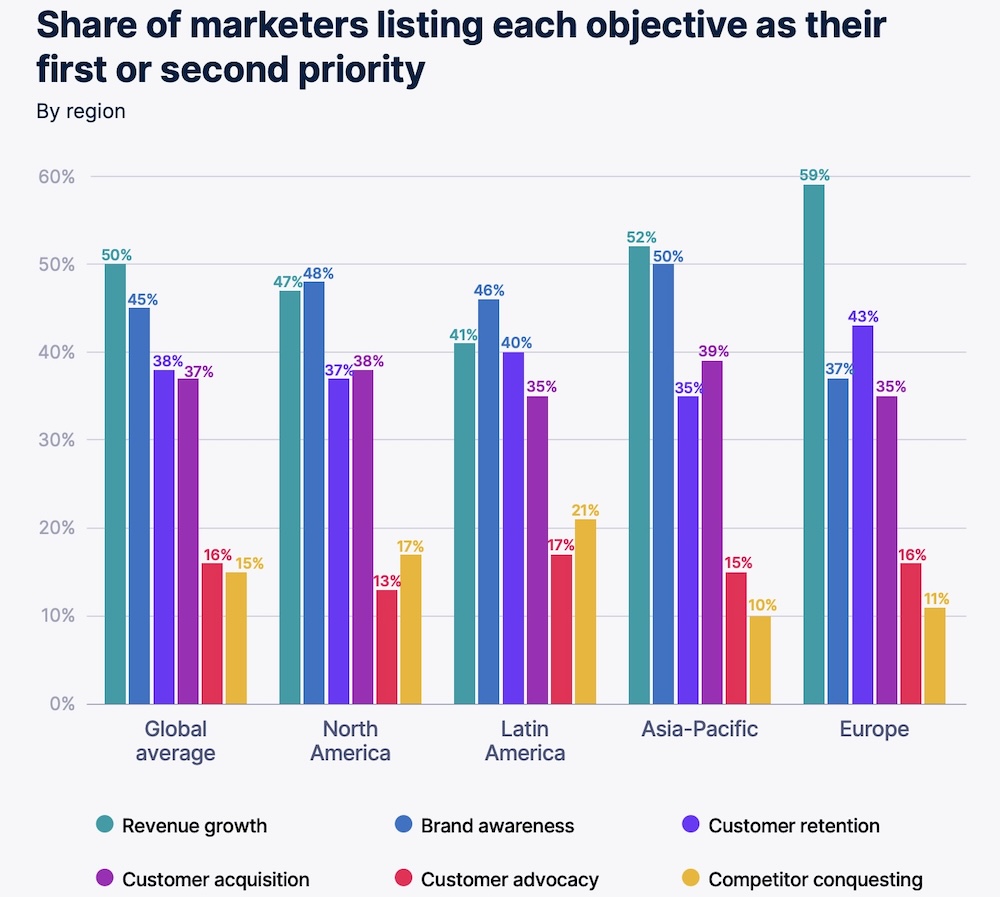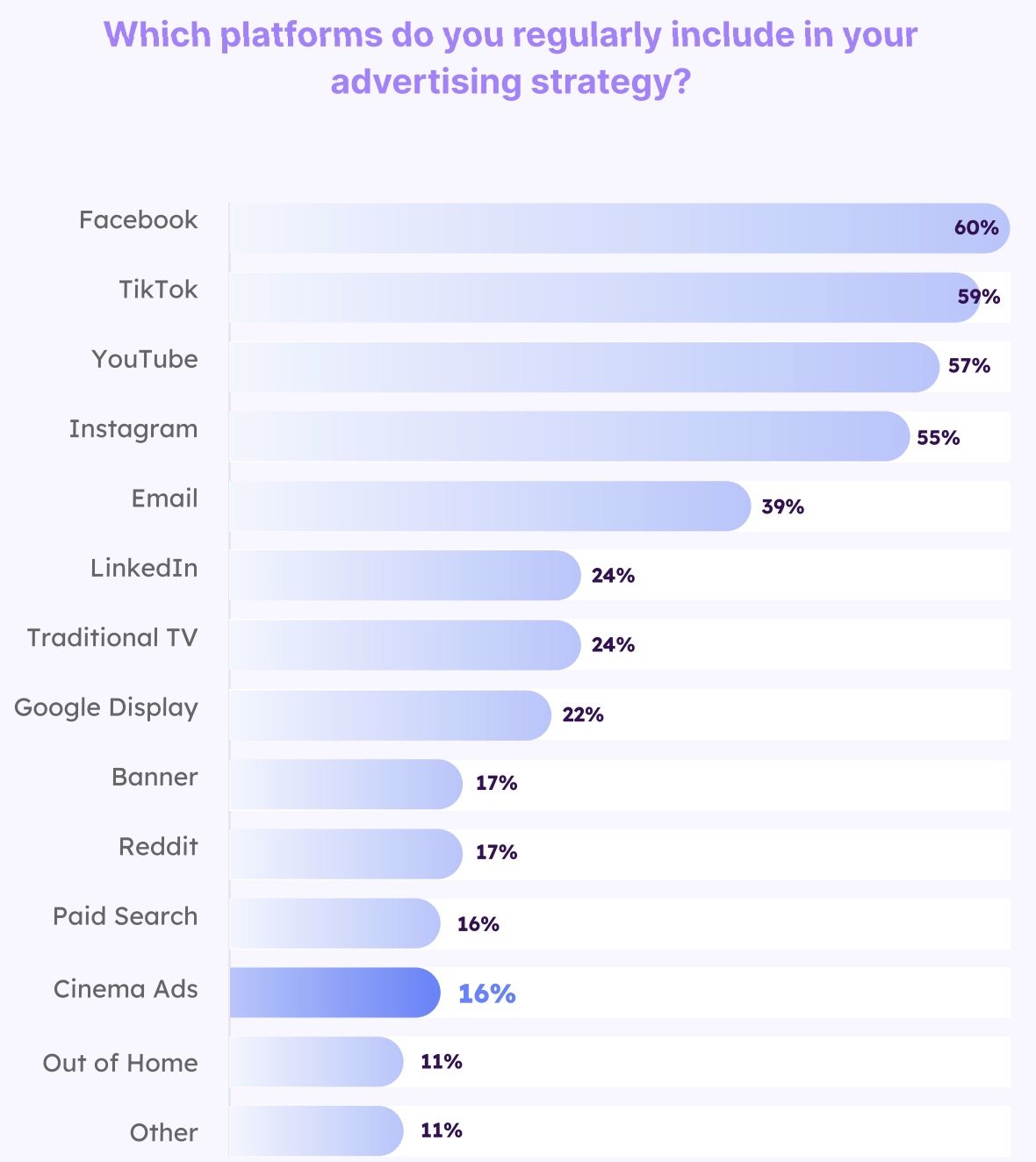The best-case scenario for a marketer is getting results without burning through the budget. The challenge to achieving this lies in knowing how to create cost-effective advertising campaigns that actually work.
It’s not about spending less but about spending smarter.
The good news is that modern advertising provides you with endless tools and data to work with. The bad news is that all this can still lead to waste if you don’t have a sound advertising plan.
If you are managing ads that look great but drain your budget, you’ve come to the right place. This quick guide gives you proven tips for creating cost-effective advertising campaigns.
9 Tips on How to Create Cost-Effective Advertising Campaigns
Figuring out how to create cost-effective advertising campaigns begins with a plan. Here are the key things you need to do first.
1. Define Your Advertising Objectives
Defining your advertising objectives is the foundation of learning how to create cost-effective advertising campaigns.
Successful marketers never go out of their way to spend money on advertising without clear goals. According to a 2025 Nielsen report, revenue growth is the top reason why marketers around the world invest in any form of advertising.

Screenshot
Your goals should define what success looks like to you. Be it generating leads, improving brand awareness, or driving more sales. Without specific objectives, campaigns often lose focus and waste money.
Defining your goals guides your message, audience targeting, platform selection, and budget allocation. You’re likely to achieve more because every action is tied to a result you can track and improve.
2. Identify Your Target Audience
Know who you want to reach and why they’d care about your message. This process involves studying your ideal customer’s age, interests, location, and buying habits.
This allows you to create ads that speak directly to their needs, rather than wasting time on broad, unfocused campaigns. It also makes it easy to roll out a detailed roadmap of your products and services.
You’ll also know which platforms to use, what tone fits best, and which visuals grab attention. Furthermore, knowing your audience makes performance tracking more accurate since you’re targeting a group that’s easier to measure and understand.
3. Create a Budget
Before considering ad placement, set a clear budget so you can stay in control. It’s a key part of learning how to create cost-effective advertising campaigns that don’t overspend or miss their mark.
Start by defining your total spend, then divide it between testing, scaling, and ongoing monitoring. This flexibility allows you to allocate money toward ads that yield better results.
More importantly, budgeting stops you from guessing numbers because you’ll be working with actual projections.
The more accurate your budgeting is, the easier it becomes to manage costs and increase your returns.
4. Choose an Advertising Platform
Every online advertising platform has a different audience and purpose. So choose a platform based on your advertising goals. It may be tempting to display your ads on every platform, but that doesn’t always translate to more exposure.
The key to understanding how to create cost-effective advertising campaigns is thinking about the online spaces your target audience frequents.
According to a 2025 Neurons report, Facebook ranks at the top of the most used advertising platforms. It’s followed by TikTok and YouTube. Consider using about 2-3 top-performing platforms.

Screenshot
You need to answer questions like, Does your audience use social media the most? Will digital signage give you more leads? Should you improve your landing pages instead?
For instance, if your audience is young and visual, social platforms like Instagram or TikTok may be more effective. LinkedIn might give stronger leads for older and professional audiences.
Test a few platforms first to see which one offers the best engagement for the price.
5. Test Different Ad Formats
Ads come in different formats: display ads, video ads, rich media ads, social media ads, and more. You can’t use all of them at once. Part of learning how to create cost-effective advertising campaigns is focusing on a format that works for you.
Each format has a different way of telling your story. For example, a short video can create emotion, while a static image delivers clarity.
To make the right choice, you can use the right online ad creator tool to create ads in different versions and formats. Watch which ones get clicks, views, or shares, and study why they work.
Consider the fact that audience behavior changes rapidly. So continue testing and adjusting formats to avoid waste and maintain flexibility.
6. Partner with Influencers
Influencers help you reach an audience that already trusts someone else’s voice. This is because people often respond better to familiar personalities than to direct ads. Therefore, this marketing strategy combines reach and authenticity.
For the best results, start with micro-influencers who focus on niche areas. They usually charge less and offer more engaged followers. Work with an influencer who relates best with your brand, so the message feels natural.
You can then identify the influencers that drive more engagement and conversions and use them for future campaigns.
7. Plan Around Trends
Trends are usually temporary, but they give you free momentum. It’s one of the easiest strategies for learning how to create cost-effective advertising campaigns that stay relevant.
Aligning your ads with what people are already discussing helps you reach more people without incurring additional costs.
For a bigger impact, keep an eye on seasonal events, viral topics, and industry moments that matter to your audience. Whenever your message fits the trend, your ad becomes part of the conversation instead of forcing attention.
Furthermore, you need to act fast when it comes to trends. Timing can make the difference because your competitors will be trying the same thing.
8. Use Retargeting
Retargeting refers to displaying ads to individuals who’ve already engaged with your brand. It’s one of the most innovative ways to learn how to create cost-effective advertising campaigns, as it focuses on an audience that has already shown interest.
Instead of spending more money on onboarding new services or chasing new leads, retargeting reminds your warm prospects why they initially clicked.
For example, someone who viewed a product page might see a short reminder, while someone who abandoned their cart could get a limited offer. This personal approach helps move people closer to purchasing without pressuring them.
However, retargeting requires moderation. Showing the same ad too often can cause users to tune out or get frustrated.
9. Track and Adjust Campaigns
Tracking your ads reveals where your money has the most real impact. If you want to master how to create cost-effective advertising campaigns, this is where you refine what you’ve built.
Start by checking more than surface-level metrics. Look at clicks and impressions to measure how many people actually take action, such as signing up or making a purchase.
Follow this up by adjusting the areas that are draining your budget without tangible results. For example, if one platform costs too much with little response, shift your budget to another alternative.
Take Your Ad Campaigns to the Next Level
Learning how to create cost-effective advertising campaigns comes down to planning, testing, and staying flexible.
Set clear goals, understand your audience, and select the most effective platforms to reach them. Budgeting keeps your spending focused, while testing formats and working with influencers help you refine your message and connect authentically.
By following these steps, you can keep your campaigns efficient, creative, and aligned with your goals.







